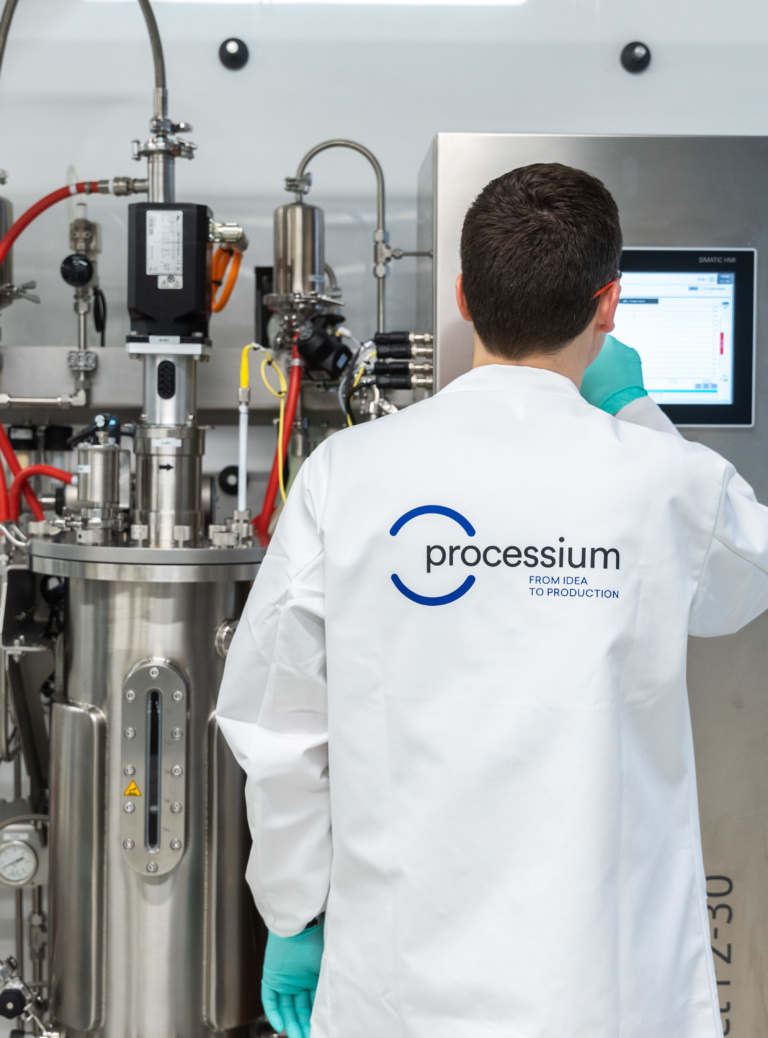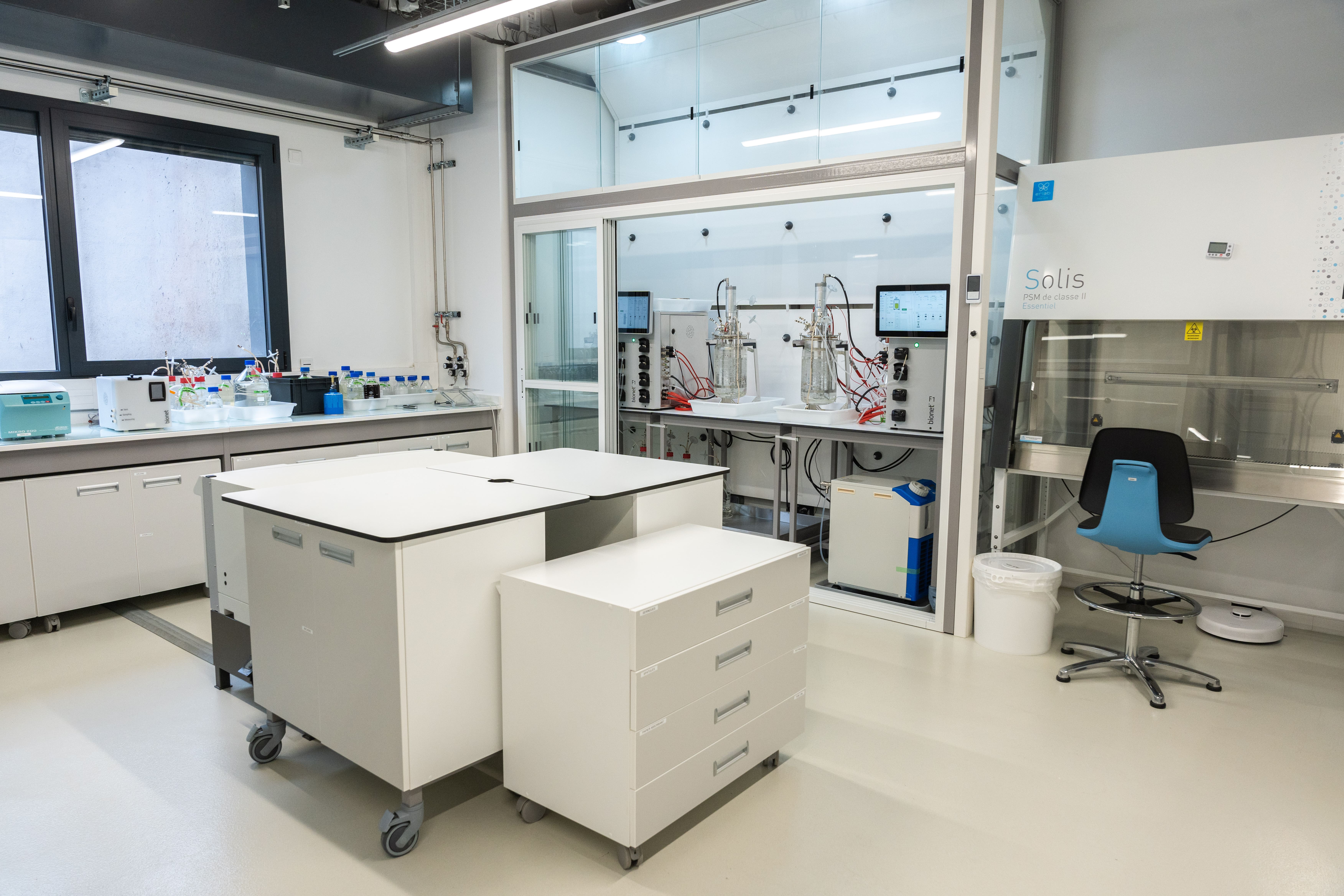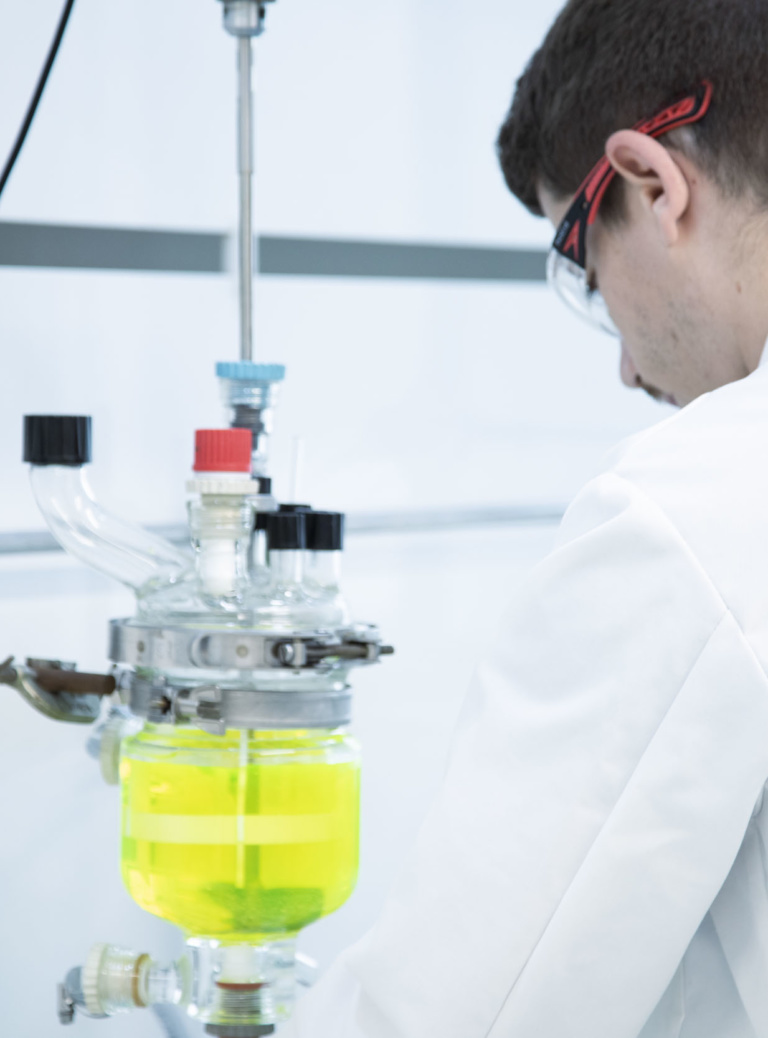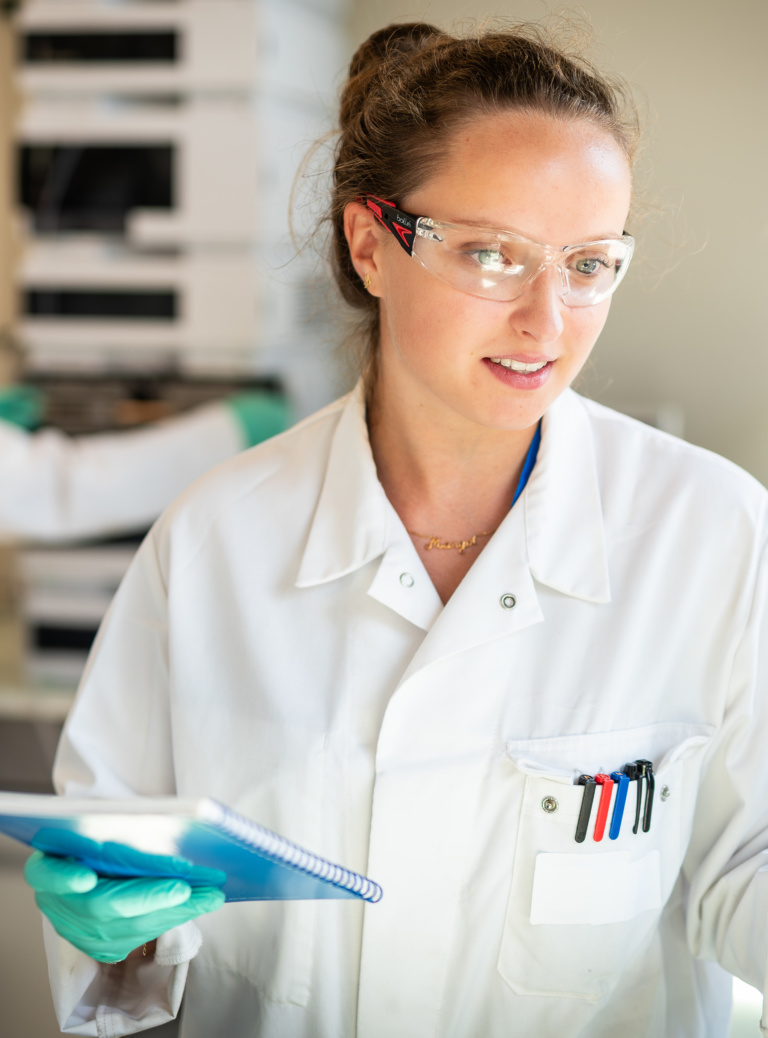
WORK IN PROCESS
Step into the daily lives of the Processium teams through a series of interviews that give voice to those who steer our projects every day. A deep dive into the know-how, journeys, and passion that drive our company forward.
N°1 – The fermentation laboratory
Since joining Processium in 2018, PhD Renato Sano Coelho has had a clear goal: to place fermentation at the heart of industrial processes. He naturally played a central role in designing the new fermentation laboratory, a key facility marking an important milestone in the company’s development. Driven by a long-standing passion for bioprocesses and a clear vision of the potential of biotechnology in transitioning towards a more sustainable industry, he now shares insights into the behind-the-scenes of this ambitious project and what it represents for Processium’s future.

Can you walk us through the main stages of your career?
I have a degree in Food Process Engineering and a Masters in Biotechnological Process Engineering from the University of Campinas, Brazil. During my Masters, I designed a bioprocess for the production of organic acids, which was subsequently patented. After that, I spent a few years working for a pharmaceutical company, manufacturing products sensitive to microbial contamination. Finally, I completed a double doctorate between Brazil and the Netherlands (TU-Delft) on fermentation for the production of biofuels from microorganisms. My thesis involved both biotechnologies and also product purification processes.
In 2018, I was hired by Processium do Brasil, and three years later, I joined the French team in Lyon. Even back then, Processium founder Pascal Rousseaux had the desire to build a fermentation laboratory. Today, I have the opportunity to really return to fermentation, including experimental fermentation, which is very exciting.
Processium inaugurated its fermentation laboratory in January 2025. What was your contribution to its design and implementation?
We started talking about it at the end of 2023, following the acquisition of Processium by Technip Energies. We were presented with a target implementation date for the new laboratory of January 2024, and we immediately started working on it. Thanks to my previous experience, I have made a major contribution to the design of this laboratory, the choice of equipment, the recruitment of technicians… My knowledge of the field helped me determine what was necessary for this laboratory, particularly regarding to microbiological contamination – of operators, environment or products – which is the main cause for concern.
Can you tell us more about how this laboratory was conceived?
This laboratory was designed to meet the fermentation uncompromising requirements as well as the needs of Technip Energies’ projects, but we weren’t starting from scratches. We had to transform one of our laboratories (originally designed for chemical processes) into a fermentation laboratory, where it is vital to work without letting microbiological contaminants through (outside in and inside out). Since the requirements were not respected, we therefore had to rethink the electrical system, the air and water treatment…
Today, we are already thinking about other equipment that could meet emerging market needs. Demand is growing all the time, so it’s up to us to equip ourselves now to meet all the specific needs that will emerge in the years to come.
Specifically, in terms of equipment and technologies, what can we find in this lab?
There are three 5L fermenters and two 30L fermenters. These are sort of hermetically sealed tanks, equipped with small motors – since organisms need agitation and aeration – and specific probes to monitor culture conditions on-line and in real time: pH, temperature, oxygen levels… In this laboratory there are also several autoclaves to sterilize anything that may encounter the product. In addition, we have installed a microbiological safety hood, specially designed for handling genetically modified organisms. It enables us to create a contamination-free workspace and filters exhaust air to prevent any leakage of microorganisms into the environment. It’s important to keep in mind that we ourselves are a major source of contamination, which is why operators will be provided with special equipment as well.
Beyond its design and equipment, how does this new laboratory strengthen Processium’s capabilities in researching and developing new industrial processes?
Fermentation was, until now, a missing piece in our framework and service offering. This new laboratory now plays a key role for Processium, as it acts as a real link between projects, allowing us to go further in developing increasingly complete processes, right up to the final product.
A significant part of Processium’s projects is related to biotech and the purification of fermentation products. However, until recently, several constraints limited our involvement. For example, some clients developed fermentation at a small scale, which was rarely sufficient to validate the process or to work effectively on purification. With this new laboratory, we can now offer our clients the opportunity to work with their strain in our fermenter in order to produce samples of up to 30L.
It’s clear this project meant a lot to you. What excited or motivated you most about working on this fermentation lab?
I think I have always had a certain passion for biotechnology because I find it fascinating that a process uses living organisms which, thanks to science, can be used in a very specific and effective way while not being designed for it at first. It’s exciting to be able to control these organisms to produce wealth for society. There’s a lot of work behind it, but it’s fascinating.
For this particular project, it is very interesting to be able to participate in the creation of the laboratory from the outset. That’s quite rare, because we usually adapt to the existing lab. Designing a brand-new fermentation lab gives us the best possible start, and of course I’m looking forward to seeing it evolve.
This lab already reflects a certain vision of the future. In your opinion, where are fermentation processes headed?
Fermentation is becoming an increasingly central topic in the development of sustainable processes, as it offers a credible alternative to fossil-based pathways. Today, the majority of the products we use — plastics, materials, fuels — still come from petroleum, but with the urgency of the climate crisis, it is essential to find alternative solutions quickly.
Fermentation also presents major environmental advantages. Unlike traditional chemical reactions that require extreme conditions — high temperature and pressure — microorganisms operate under conditions similar to our own. This means fermentation processes work in much milder environments, which can lead to significant energy savings.
There is also a common misconception that biochemical processes are always less efficient than conventional ones, but that’s not necessarily true. Petroleum-based processes have benefited from decades of funding and development, which makes them more competitive today. I’m confident this will change in the coming years, but public awareness is essential.
In my view, fermentation will become a key process in the near future, especially thanks to advances in artificial intelligence. We’re already seeing AI-powered tools capable of discovering highly promising new biotechnological products — for example, molecules with enhanced effects for pharmaceutical development.
Alright, last question — and not the easiest one: if a child asked you what fermentation is, how would you explain it?
Let’s imagine micro-organisms as little animals that need to be fed. They need a balanced diet if they are to be healthy and grow. Just like when we feed cows a balanced diet so that they produce better milk. Micro-organisms are the same: we put them in a culture, feed them properly and harvest new products of interest. A fermentation process is like a little high-tech laboratory farmer.


